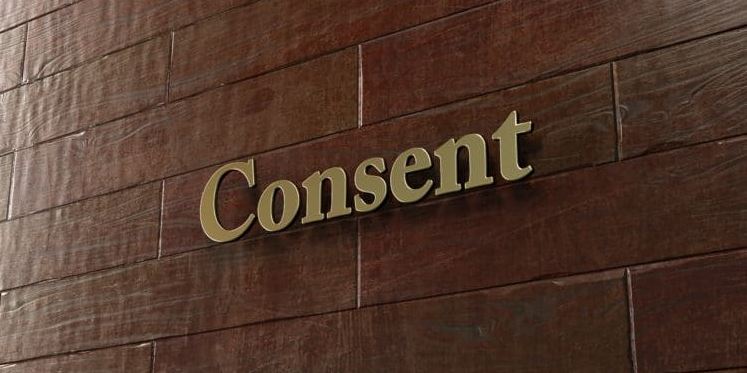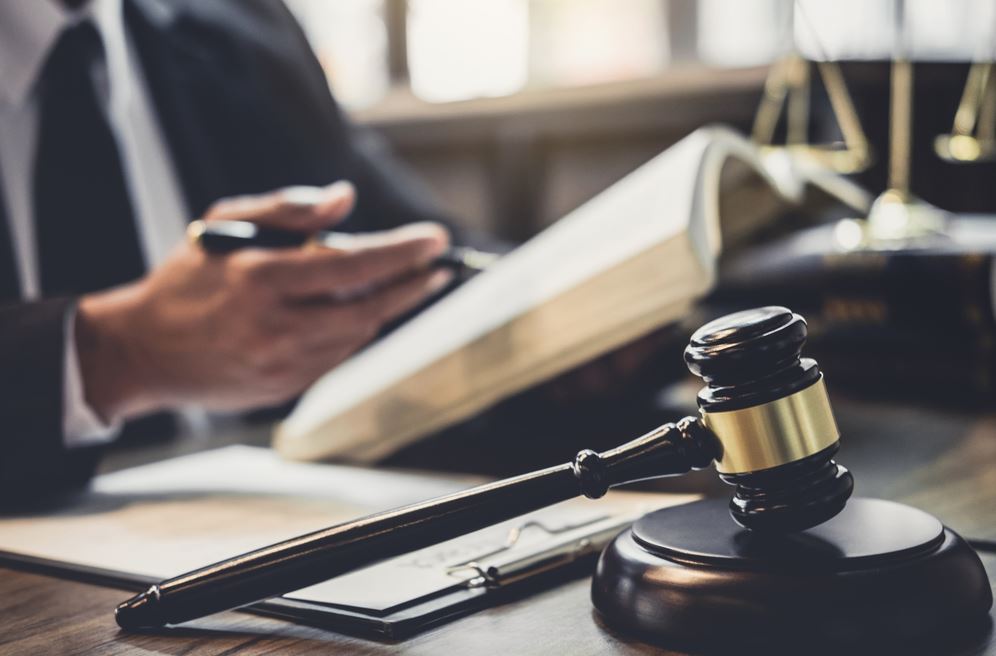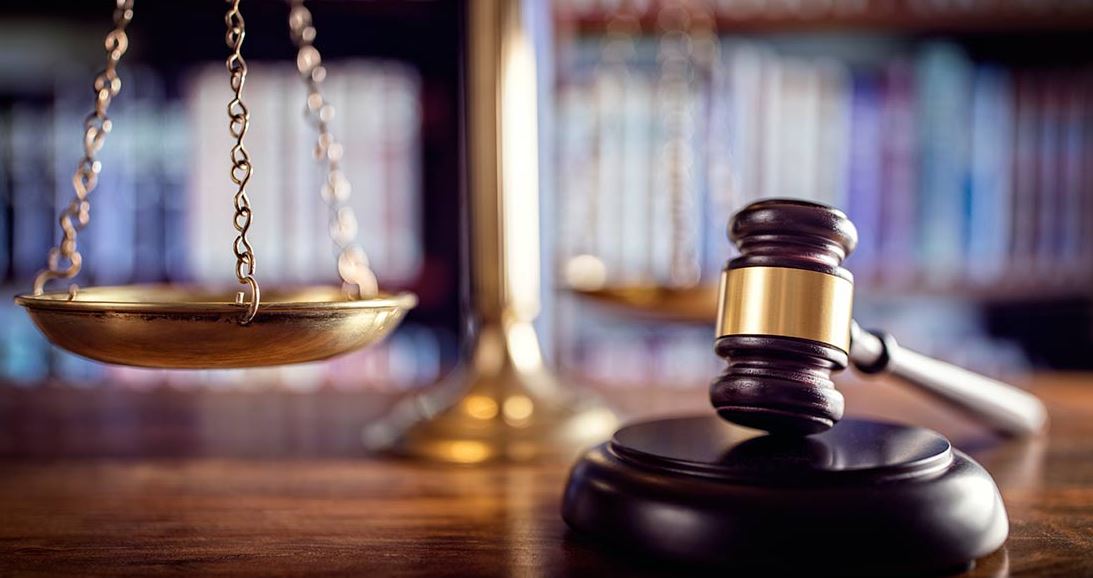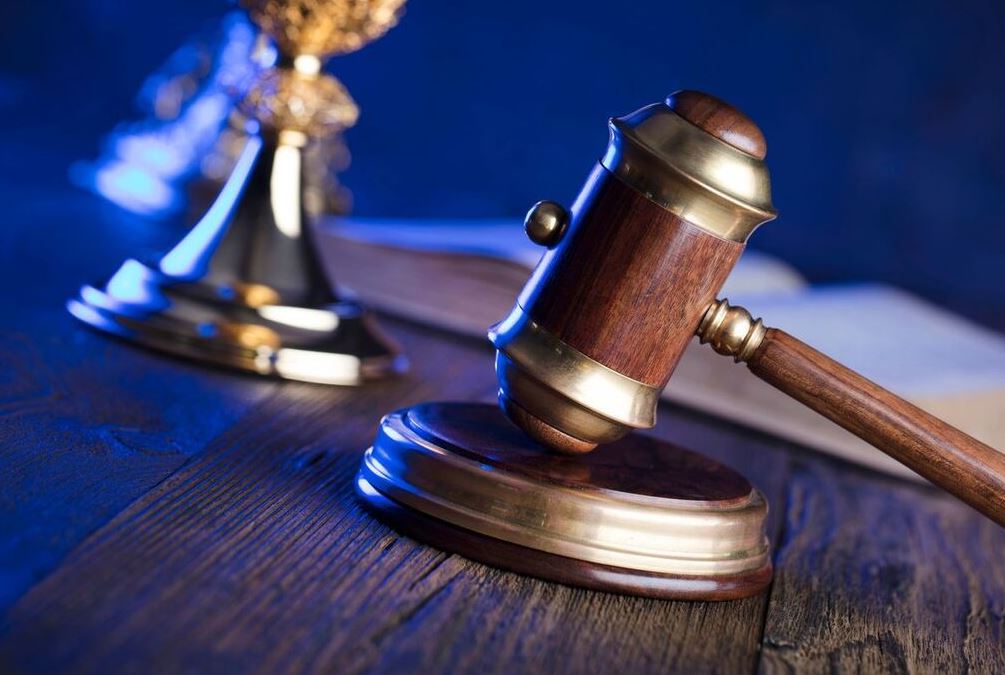Consent Age Washington State A Comprehensive Guide to Sexual Offenses and Reporting Procedures
Understanding the legal landscape surrounding sexual offenses is crucial for individuals navigating Washington State’s complex judicial system. In particular, the concept of consent age Washington State is a key aspect of these laws, defining the legal boundaries for sexual activity. Washington State’s laws are notably stringent and cover a range of issues from child pornography to sexual consent and rape. Given the severe consequences associated with violations, it’s essential for residents and those interacting with the state to be well-informed about these legal nuances.
This essay aims to provide a comprehensive overview of Washington State’s laws concerning sexual offenses. It will explore the intricacies of child pornography laws, detailing the severe penalties for possession and distribution. Additionally, it will address the legal definition of consent, with a focus on the consent age in Washington State and the restrictions that apply. The discussion will also cover the definitions and legal repercussions of rape, including the nature of forcible sexual intercourse and the associated penalties.
The purpose of this essay is twofold. First, it seeks to inform readers about the detailed legal framework governing sexual offenses in Washington State, ensuring they understand the specific laws and their implications. Second, it provides practical guidance on the steps to take if one becomes a victim of sexual assault or rape. By outlining immediate actions, such as seeking medical attention and counseling, the essay aims to offer crucial support and resources to those affected by such crimes. This comprehensive examination not only clarifies the legal aspects but also equips individuals with the knowledge needed to navigate the aftermath of sexual offenses effectively.
Washington State Laws on Child Pornography
Definition of Child Pornography
Child pornography is defined under Washington State law as any visual depiction of sexually explicit conduct involving minors. This includes photographs, videos, digital images, or any other form of media that portrays a minor engaged in sexually explicit acts or exhibiting sexually explicit conduct. Washington State law adopts a broad interpretation to encompass various types of explicit materials involving individuals under the age of 18. This definition is aimed at ensuring that all forms of sexually explicit material involving minors are covered, regardless of the medium or technology used to create or distribute them.

Examples of sexually explicit images involving minors include:
- Photographs or videos depicting minors in sexually suggestive poses or engaged in sexual acts.
- Images or videos showing minors in explicit, inappropriate, or compromising situations.
- Digital content where minors are manipulated or altered to appear sexually explicit.
Legal Consequences
Washington State imposes severe penalties for the possession, distribution, and production of child pornography. These legal consequences reflect the state’s commitment to protecting minors from exploitation and abuse. The penalties for those convicted of child pornography offenses are among the harshest in the country and include:
- Jail Time: Conviction of child pornography charges often results in significant prison sentences. The length of incarceration can vary depending on the specific charges and circumstances but can range from several years to decades. For instance, possession of child pornography is classified as a class B felony, carrying a potential sentence of up to 10 years in prison, while distribution or production may result in even longer sentences.
- Fines: Convicted individuals may face substantial financial penalties. These fines can be imposed alongside prison sentences and are intended to cover legal costs, victim restitution, and other related expenses. The amount of the fine can vary, but it is typically substantial, reflecting the severity of the crime.
- Criminal Records: A conviction for child pornography results in a permanent criminal record, which can have long-lasting effects on an individual’s life. This criminal record can impact employment opportunities, housing options, and various other aspects of daily life, effectively stigmatizing the convicted individual.
Registration as a Sex Offender
One of the most significant and enduring consequences of a child pornography conviction in Washington State is the requirement to register as a sex offender. This registration process involves several key elements:
- Overview of Sex Offender Registration Requirements: Individuals convicted of child pornography offenses must register with the Washington State Patrol’s Sex Offender Registration Unit. This registration involves providing personal information, including name, address, and details of the conviction, to law enforcement authorities. The information is made accessible to the public through the state’s sex offender registry.
- Lifetime Implications and Restrictions: The registration requirement for sex offenders is typically lifelong. This means that individuals must continue to report their address and other relevant information to authorities for the rest of their lives. Failure to comply with registration requirements can result in additional legal consequences. The registration can also lead to ongoing social and legal restrictions, including limitations on where individuals can live and work, and difficulties in establishing and maintaining personal relationships.
In summary, Washington State’s laws on child pornography are designed to address the severe nature of such offenses with strict penalties and long-term consequences. The legal framework underscores the state’s dedication to combating the exploitation of minors and ensuring that those who engage in or facilitate these crimes face significant repercussions.
Understanding Consent
Definition of Consent
Consent, in a general legal context, refers to the permission or agreement given by an individual for something to happen. It implies a voluntary, informed, and unequivocal agreement to a particular action or decision. The concept of consent is fundamental across various areas of law and personal interaction, ensuring that any agreement is made freely and without coercion.

In Washington State, the definition of consent is particularly critical in the context of sexual activities and criminal law. The legal framework requires that consent must be clear, knowing, and willingly given. This means that consent cannot be obtained through force, manipulation, or deception. Moreover, consent must be communicated explicitly, and all parties involved must fully understand what they are agreeing to.
Sexual Consent
Sexual consent specifically refers to the agreement to engage in sexual activities. It is a crucial aspect of sexual conduct and is legally defined to ensure that all parties involved in sexual activity are on the same page regarding their willingness to participate. The importance of sexual consent lies in its role in protecting individuals from sexual violence and exploitation, ensuring that sexual activities are mutually agreed upon and respectful.
In Washington State, sexual consent is legally required for any form of sexual activity. This includes all types of sexual conduct, whether it involves penetration or other forms of sexual interaction. Without valid consent, any sexual activity is considered unlawful and can lead to serious criminal charges, including rape and sexual assault.
Legal Age of Consent in Washington State
In Washington State, the legal age of consent is 16 years old. This means that individuals who are 16 or older are legally permitted to consent to sexual activities. However, the law also includes specific provisions to protect younger individuals from exploitation and abuse, particularly in relationships with significantly older partners.
Age Restrictions and Limits
For individuals aged 16 and 17, Washington State law imposes additional age restrictions to safeguard against potential abuse of the age of consent laws. These restrictions are designed to prevent situations where a minor could be exploited by significantly older individuals. Specifically:
- Consent for Individuals Aged 16 and 17: While individuals who are 16 or 17 years old can legally consent to sexual activities, there are limitations on the age of their partners. These limitations are intended to protect minors from predatory behavior and exploitation by older individuals.
- Relationship Restrictions: Partner’s Age Limit: In Washington State, if a person who is 16 or 17 years old engages in sexual activities, their partner must be no more than 5 years older than them. This rule ensures that relationships between minors and older individuals are not exploitative. For instance, a 16-year-old can legally consent to a relationship with someone who is up to 21 years old, but not with someone who is older than that.
These legal provisions underscore the state’s commitment to balancing the rights of minors with the need to protect them from potential abuse and exploitation. By setting clear age limits and consent requirements, Washington State aims to ensure that all sexual activities are consensual and respectful of individual rights.
Rape and Sexual Assault Laws
Definition of Rape
In Washington State, rape is defined as non-consensual sexual intercourse. The legal definition encompasses a range of sexual acts that are performed without the explicit consent of the victim. Rape is classified as a serious felony, reflecting the gravity of the crime and its profound impact on victims. According to Washington law, sexual intercourse involves penetration of the vagina, anus, or mouth, and can include both physical penetration and oral sex. This comprehensive definition ensures that all forms of non-consensual sexual activity are covered under the law.

Forcible Sexual Intercourse
Forcible sexual intercourse refers to sexual acts performed under duress or coercion, which can be either physical or emotional. The concept of force in the context of rape includes:
- Physical Force: This involves the use of physical strength or violence to compel someone to engage in sexual activity against their will. Examples include hitting, restraining, or any physical act that overrides the victim’s ability to consent.
- Emotional Force: Emotional coercion involves manipulation, threats, or psychological pressure that compels an individual to consent to sexual activities. This can include threats of harm, blackmail, or other forms of emotional intimidation that create fear or pressure to comply.
Washington State law recognizes both forms of force in rape cases, ensuring that victims who experience either physical or emotional coercion receive legal protection and justice.
Legal Consequences of Rape
The legal consequences for rape in Washington State are severe, reflecting the serious nature of the offense. Convictions for rape result in significant penalties designed to punish offenders and deter future crimes. The primary legal consequences include:
- Jail Time: A conviction for rape in Washington State can lead to a lengthy prison sentence. Depending on the circumstances and severity of the crime, sentences can range from several years to life imprisonment. Washington law classifies rape as a class A felony, the most serious category of felonies, which carries the potential for significant incarceration.
- Fines: In addition to jail time, individuals convicted of rape may be subjected to substantial financial penalties. These fines are intended to cover legal costs, restitution to victims, and other related expenses. The amount of the fine can vary based on the case specifics and the court’s judgment.
- Registration as a Sex Offender: A conviction for rape also results in mandatory registration as a sex offender. This requirement involves regularly updating personal information with law enforcement agencies and making this information available to the public. Registration as a sex offender has lifelong implications, affecting various aspects of an individual’s life, including employment opportunities, housing, and social relationships.
In summary, Washington State’s laws on rape and sexual assault are designed to address the severity of these crimes comprehensively. The definitions provided cover a wide range of non-consensual sexual acts, including both physical and emotional coercion. The legal consequences for perpetrators include substantial jail time, financial penalties, and lifelong sex offender registration, underscoring the state’s commitment to justice and the protection of victims.
What to Do if You Are Raped
Immediate Steps
If you have been raped, taking immediate steps is crucial for both your physical well-being and your ability to seek justice. The first and foremost step is to preserve any evidence of the assault. It is important not to change your clothes, shower, or clean yourself in any way, as these actions can destroy crucial evidence that may be needed for a forensic examination. Evidence from your body, clothes, or any other potential sources can play a vital role in a legal investigation and prosecution.

Calling 911 should be one of your first actions. Reporting the crime to the police not only helps ensure your immediate safety but also initiates the process of legal intervention. Emergency responders can provide immediate medical care and transport you to a hospital where you can receive comprehensive medical attention and forensic examination.
Medical and Forensic Examination
Hospitals play a critical role in addressing the immediate needs of a rape survivor. Upon arrival, you will receive a medical examination to address any physical injuries, ensure your health and safety, and provide emergency contraception or prophylaxis for sexually transmitted infections (STIs) if needed.
A forensic examination, often conducted by a Sexual Assault Nurse Examiner (SANE) or a similar specialized professional, is an essential part of the process. This examination is designed to collect and preserve evidence of the assault, such as DNA, hair samples, and other physical evidence that can be crucial in legal proceedings. Timely medical care is crucial for both treating any injuries and gathering evidence, as some forensic evidence can deteriorate over time.
Counseling and Support
Beyond immediate medical care, seeking professional counseling and emotional support is vital for your recovery. Rape is a traumatic experience, and professional counselors or therapists who specialize in trauma and sexual assault can provide essential support. They offer a safe space to discuss your feelings, work through the trauma, and begin the healing process.
There are numerous resources available for support and guidance. National and local hotlines provide confidential support and can connect you with counseling services and support groups. Organizations like RAINN (Rape, Abuse & Incest National Network) offer 24/7 crisis support and can assist in finding local resources. Support groups offer a communal space where survivors can share their experiences and support each other, helping to alleviate feelings of isolation and providing practical advice and emotional comfort.
In summary, if you are a victim of rape, preserving evidence, seeking immediate medical care, and obtaining professional counseling are critical steps. The importance of timely action cannot be overstated, as it can significantly impact your physical health, emotional recovery, and legal options. There are extensive resources available to provide the necessary support and guidance through this challenging time, ensuring that you do not have to face the aftermath alone.
Legal Procedures and Resources
Reporting a Crime
Reporting a sexual offense is a crucial step in seeking justice and ensuring the perpetrator is held accountable. To report a sexual crime, you should contact law enforcement immediately, either by calling 911 or visiting a local police station. When reporting, provide as much detail as possible about the incident, including the location, time, and description of the perpetrator. This information helps law enforcement in their investigation and response.

Law enforcement agencies are responsible for conducting investigations into sexual offenses. Their role includes collecting evidence, interviewing witnesses, and coordinating with forensic experts. They work to build a case based on the evidence provided and the information gathered during their investigation. The process can be sensitive and thorough, aiming to uphold the integrity of the case while ensuring the victim’s safety and privacy.
Legal Assistance
Accessing legal representation is a critical component of navigating the aftermath of a sexual offense. Legal representation can help you understand your rights, guide you through the judicial process, and advocate on your behalf. Attorneys specializing in sexual assault cases can provide expert advice on legal options, such as filing criminal charges, pursuing a civil lawsuit, or navigating the victim compensation process.
Legal aid resources and organizations are available to assist individuals who may not be able to afford private legal representation. Organizations such as the Legal Aid Society, Washington State’s Office of Public Defense, and various local advocacy groups offer free or low-cost legal services. These organizations can provide support ranging from legal consultations to full representation in court, ensuring that victims have access to necessary legal assistance.
Victim Rights
Victims of sexual offenses in Washington State have specific rights designed to protect and support them throughout the legal process. Understanding these rights is essential for ensuring that they are upheld and that victims receive the support they need. Some key rights include:
- Right to Privacy: Victims have the right to privacy, which includes protection from public disclosure of personal information related to the crime. Law enforcement and legal proceedings should ensure that sensitive details are kept confidential to protect the victim’s dignity and safety.
- Right to Be Informed: Victims have the right to be informed about the status of the investigation and any legal proceedings. This includes being notified of court dates, the outcome of legal actions, and any significant developments in the case.
- Right to Participate: Victims have the right to participate in the legal process, including providing testimony and making victim impact statements. They can also request restitution for damages and losses incurred as a result of the crime.
- Access to Support Services: Victims are entitled to access various support services, including counseling, medical care, and advocacy services. These services are designed to help them cope with the emotional and physical aftermath of the assault and to support their recovery.
In Washington State, there are numerous resources available to support victims, including the Washington State Crime Victim Service Center, local victim advocacy organizations, and support hotlines. These resources provide a range of services, from crisis intervention and counseling to legal advocacy and practical assistance, ensuring that victims have comprehensive support throughout their journey.
In summary, navigating the legal procedures and resources following a sexual offense involves understanding how to report the crime, accessing legal assistance, and knowing your rights as a victim. Utilizing the available resources and support services can significantly impact the process and outcome of seeking justice and recovery.
Prevention and Education
Educational Programs
Educational programs play a critical role in preventing sexual offenses and promoting a culture of consent and respect. These programs are often implemented in schools and community settings to educate individuals about the importance of consent, healthy relationships, and the prevention of sexual violence.
School and Community-Based Educational Initiatives: Many schools incorporate sexual health education into their curricula, focusing on topics such as consent, personal boundaries, and the nature of healthy relationships. These programs aim to equip students with the knowledge and skills to navigate their interactions respectfully and safely. Community-based initiatives often extend this education beyond the school environment, targeting various age groups and populations to raise awareness and foster a culture of respect and safety.
Importance of Consent Education and Awareness: Consent education is fundamental to preventing sexual violence. By teaching individuals what consent means—explicit, informed, and voluntary agreement to engage in any activity—educational programs help prevent misunderstandings and promote respectful interactions. Understanding consent empowers individuals to make informed choices and recognize the boundaries of others, reducing the likelihood of coercion and assault.
Public Awareness Campaigns
Public awareness campaigns play a crucial role in preventing sexual violence by increasing awareness and promoting societal change. These campaigns often target broad audiences through various media channels, including television, radio, social media, and public events.
Role of Public Campaigns in Prevention: Public campaigns are designed to challenge and change societal attitudes towards sexual violence and consent. By highlighting the issues and providing education, these campaigns work to create a more informed and supportive community. They aim to reduce stigma, encourage reporting of sexual offenses, and support survivors. Effective campaigns can shift public perceptions and contribute to a cultural change that prioritizes respect and accountability.
Examples of Effective Campaigns and Their Impact: Several public awareness campaigns have made significant impacts in promoting prevention and support. For instance:
- The “No More” Campaign: This national campaign focuses on ending domestic violence and sexual assault. It uses powerful messaging and public service announcements to raise awareness and encourage communities to take action against these issues. The campaign’s emphasis on solidarity and collective responsibility has led to increased discussions and actions related to sexual violence prevention.
- The “It’s On Us” Campaign: Launched by the White House, this campaign aims to combat campus sexual assault and promote a culture of consent. It encourages students and communities to take an active role in preventing sexual violence and supporting survivors. The campaign’s visibility and widespread adoption in educational institutions have helped foster greater awareness and proactive measures against sexual assault on campuses.
In summary, prevention and education are crucial components in the fight against sexual violence. Educational programs in schools and communities help build a foundation of knowledge and respect, while public awareness campaigns work to shift societal attitudes and promote preventative actions. Both approaches are essential in creating a culture that values consent and supports survivors, ultimately contributing to a safer and more informed society.
Understanding Washington State’s laws regarding sexual offenses is crucial for ensuring both personal safety and effective pursuit of justice. A key component of these laws is the consent age Washington State, which sets clear age-related restrictions to protect minors from exploitation. The state’s legal framework includes strict regulations against child pornography, with severe penalties for offenders, and comprehensive rape and sexual assault laws covering various forms of non-consensual sexual activity. These laws outline significant legal consequences, including imprisonment and sex offender registration. Following a sexual offense, procedures such as reporting, medical care, and legal support are vital for addressing the aftermath and seeking justice.
Being informed about these legal frameworks empowers individuals to understand their rights, navigate legal processes, and access necessary support services. Victims and survivors are encouraged to seek immediate medical and emotional support, report crimes, and utilize available legal resources, contributing to a more responsive and supportive legal system. Engaging in community education and awareness campaigns fosters a culture of respect, consent, and safety, crucial for prevention and support. Active involvement in these efforts helps create a safer environment and reduces sexual violence.
Age -Chloe Guidry age Rising Star in TV and Film – A Detailed Exploration of Her Journey and Achievements
Makeiva Albritten Age and More A Deep Dive into Her Career, Personal Life, and Net Worth
Tony Evans’ New Chapter Discover Carla Crummie Age, Career, and More
Bo Bassett Age and His Father’s Journey Advocating for Empowering Education and School Choice
Navigating the Complexities of Age of Consent Washington State Legal Implications and Consequences
Crip Mac age A Comprehensive Look at the Rapper’s Life and Career
Casey Orr age A Multifaceted Journey Through Metal and Beyond